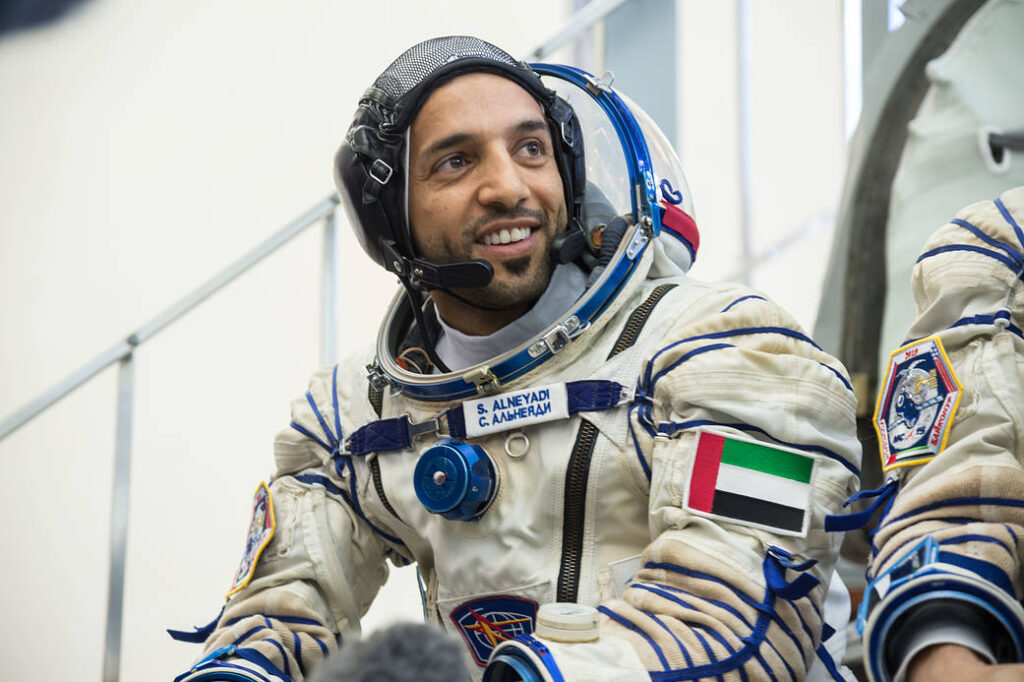The United Arab Emirates (UAE) became the third Middle Eastern nation to send a man into space in 2019 when it launched Hazza Al Mansouri to the International Space Station, making him the nation’s first astronaut according to catapult. The UAE then rose to the position of the 40th spacefaring nation. Now, Sultan Al Neyadi is another astronaut embarking on a new journey to set new records. An announcement was made earlier last week that UAE’s Al Neyadi will be flying to the orbiting lab on SpaceX’s Crew-6 mission, which is expected to launch in the first half of 2023 from Florida’s Kennedy Space Centre in the U.S. His participation was arranged through a previously disclosed agreement with Axiom Space, a Texas-based aerospace company.
Al Neyadi was chosen among a group of Emirati astronauts to serve as the first Arab astronaut on a protracted space mission to the International Space Station (ISS). The Crew-6 mission will be launched by NASA and SpaceX. Al Neyadi will carry out numerous intricate and sophisticated scientific experiments throughout the flight as a part of the UAE Astronaut Program.
Last year, the UAE made history with its unmanned Hope Probe to Mars by becoming the first Arab country and the fifth globally to reach the Red Planet. The mission has since discovered a new type of aurora on Mars, challenging scientists’ understanding of the planet, which was thought not to possess auroras at all. It is clear that the UAE is looking for possibilities to utilize advanced satellite communications, and use cutting-edge space technology on Earth. Therefore, the UAE established the National Space Fund which is an AED 3 billion fund from UAE Space Agency.
The fund will promote innovative initiatives that assist foreign and Emirati businesses in working together on applications in the engineering, sciences, and research fields related to space. A constellation of sophisticated remote sensing satellites using radar technologies will be the fund’s first project to be sent into orbit and will offer unmatched imaging capabilities.
This fund is crucial since it has made other projects possible and enabled economic diversification. A unifying factor among many of the Gulf Region’s nations is the transition away from an economy reliant on the production and sale of oil. In addition to the UAE, other nations like Saudi Arabia, Bahrain, and Kuwait are currently investing billions of dollars in research and development to open up new businesses, which has gradually raised regional interest in space.
The UAE’s trajectory is one that is ambitious to expand its space sector which was made official In March 2019. This is when the UAE Government launched the National Space Strategy 2030, which sets the general framework for the UAE’s space industry and activities carried out by public and private sectors for the years leading up to 2030.
source/content: scoopempire.com
_____________

___________________________________
UNITED ARAB EMIRATES (U.A.E.)